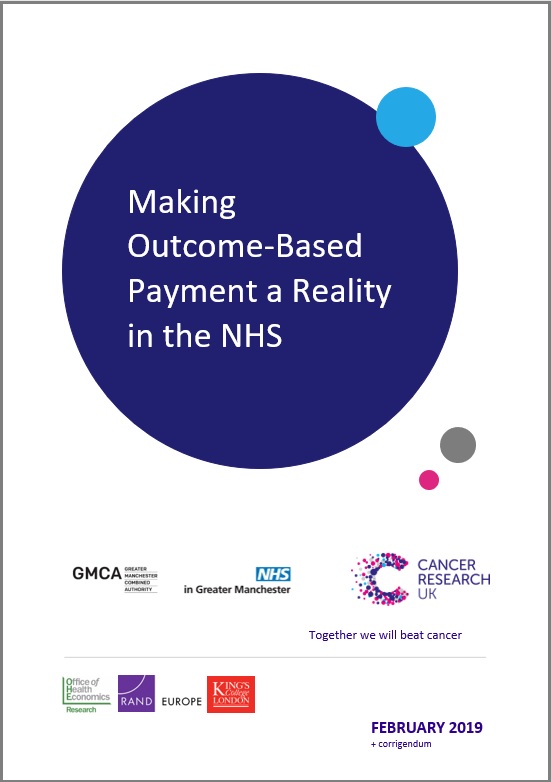This report explores the feasibility of introducing one type of flexible payment mechanism – outcome-based payment (OBP) – for cancer medicines into the NHS in England. OBP could help to accelerate patient access to some new medicines and ensure close monitoring of real-world patient benefit.
This report explores the feasibility of introducing one type of flexible payment mechanism – outcome-based payment (OBP) – for cancer medicines into the NHS in England. OBP could help to accelerate patient access to some new medicines and ensure close monitoring of real-world patient benefit.
OHE Research Paper 19/01: This report explores the feasibility of introducing one type of flexible payment mechanism – outcome-based payment (OBP) – for cancer medicines into the NHS in England. This model links the price the NHS pays for a medicine to the outcomes it achieves in practice for NHS patients. OBP could help to accelerate patient access to some new medicines and ensure close monitoring of real-world patient benefit. It can also promote value for money in NHS spending and support innovation. This is especially valuable against the backdrop of rising overall NHS spending on medicines.
The findings in this report are based on both qualitative and quantitative analysis, using a combination of literature reviews, interviews with key stakeholders, and engagement with patients and carers through focus groups and a survey.
This report is the result of a research grant awarded to The Office of Health Economics and RAND Europe in collaboration with King’s College London in 2018, by Cancer Research UK and Greater Manchester Health and Social Care Partnership (GMHSCP).
Please cite this report as: Cole, A., Cubi-Molla, P., Pollard, J., Sim, D., Sullivan, R., Sussex, J. and Lorgelly, P., 2019. Making Outcome-Based Payment a Reality in the NHS. OHE, RAND Europe, KCL and Cancer Research UK Research Paper. Available at: https://www.ohe.org/publications/making-outcome-based-payment-reality-nhs
Part of this document has been published in The Patient – Patient-Centered Outcomes Research and can be downloaded from: https://link.springer.com/article/10.1007/s40271-020-00430-x
Please cite as: Lorgelly, P., Pollard, J., Cubi-Molla, P. et al. Outcome-Based Payment Schemes: What Outcomes Do Patients with Cancer Value?. Patient (2020). https://doi.org/10.1007/s40271-020-00430-x
Erratum:
17/06/2019: Please note that this copy of the report (originally published February 2019) has been updated to correct a sentence on page 126, the new version saying ‘patients treated in England (at time of publication)’ instead of ‘English patients’.


